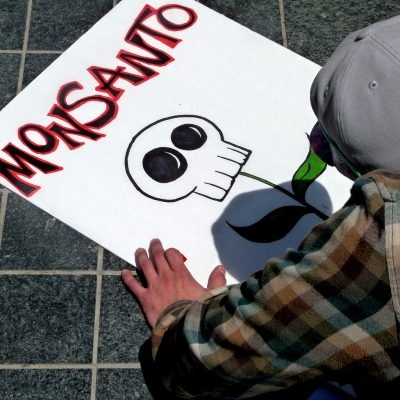The Use of of Damaging Dicamba Pesticides on Farmers in America
Joint Statement from National Family Farm Coalition, Center for Food Safety, Center for Biological Diversity, and Pesticide Action Network North America, Petitioners in National Family Farm Coalition vs. EPA and Monsanto

On June 3 the U.S. Court of Appeals for the Ninth Circuit ruled that the new over-the-top use registrations of dicamba formulations XtendiMax, FeXapan, and Engenia are null and void, effective immediately. The ruling was crystal clear: These pesticides can no longer be legally sold or sprayed on dicamba-resistant soybeans or cotton.
State officials have called on EPA for clarification of the Court’s ruling, some maintaining their states will allow continued use of dicamba unless or until directed otherwise. But the EPA has ignored their calls, just as it ignored the growers harmed by dicamba.
Instead of helping farmers understand and implement the Court’s order to immediately stop the use of dicamba, on Friday EPA administrator Andrew Wheeler released a statement alleging the decision was a “threat to America’s food supply,” an assertion totally unsupported by any facts. Then, citing the potential economic harm to farmers using dicamba—but not mentioning the overwhelming and well-documented harm to farmers damaged by its use—Wheeler said EPA “is assessing all avenues to mitigate the impact” of the Court’s decision.
EPA should immediately confirm to the states that these uses are illegal. EPA’s failure to do so to this point is a dereliction of the agency’s duty to farmers and the public. We represent farmers, including many who have suffered years of drift damage from these harmful dicamba products. They must not be subjected to a fourth year of rampant injury to their crops from dicamba drift.
As the Court held, EPA both grossly understated the damage and ignored that it is virtually impossible for dicamba-users to follow—in real world conditions—the EPA’s use instructions. And the damages are more than economic: Allowing these uses is tearing the social fabric of farming communities as well as having anti-competitive, monopolistic effects.
The pesticide companies have already deceived farmers twice. They pressured EPA for approval and then sold their dicamba products for four years in the face of substantial evidence that they would cause disastrous offsite drift damage. Worse, when unprecedented and disastrous drift injury did occur, these companies blamed their farmer customers rather than their harmful products. If Bayer/Monsanto, Corteva, and BASF want to help their customers, they should reimburse them for their unusable dicamba products, facilitate safe disposal, and make their farmer-customers whole, rather than leave them in the lurch, yet again.
*
Note to readers: please click the share buttons above or below. Forward this article to your email lists. Crosspost on your blog site, internet forums. etc.

